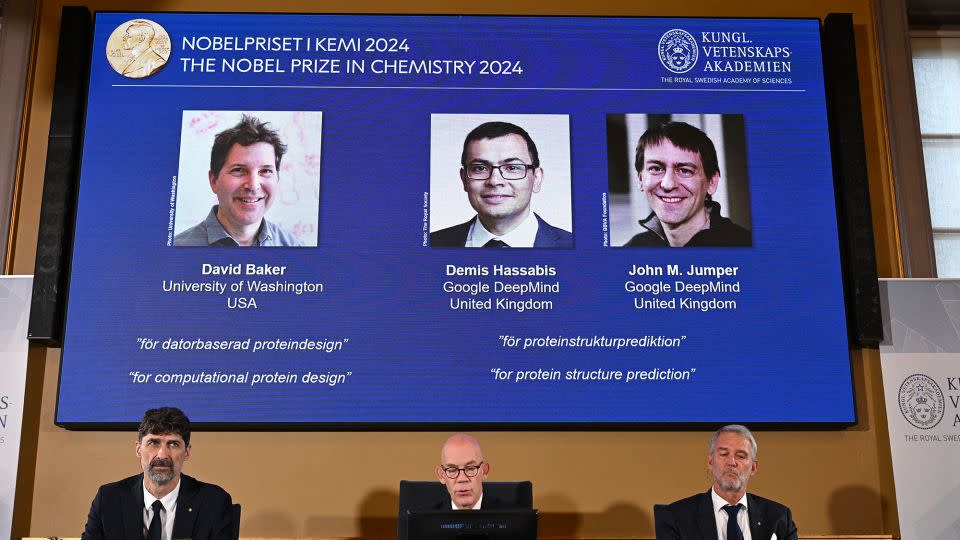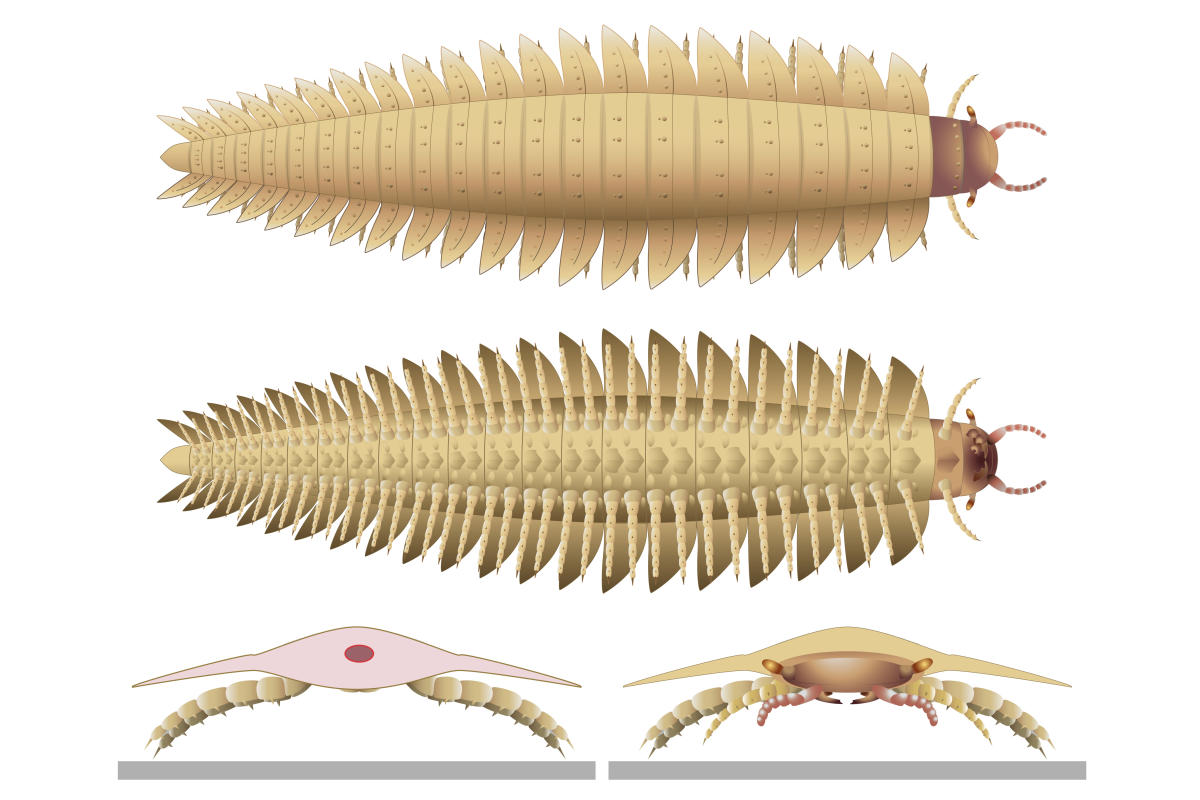The 2024 Nobel Prize in chemistry has been awarded to a trio of scientists who used artificial intelligence to “crack the code” of almost all known proteins, the “chemical tools of life.”
The Nobel Committee lauded David Baker for completing “the almost impossible feat of building entirely new kinds of proteins,” and Demis Hassabis and John Jumper for developing an AI model to predict proteins’ complex structures – a problem that had been unsolved for 50 years.
“The potential of their discoveries is enormous,” the committee said as the award was announced in Sweden on Wednesday. The prize, seen as the pinnacle of scientific achievement, carries a cash award of 11 million Swedish kronor ($1 million).
Proteins, a string of amino acid molecules, are the building blocks of life. They help form hair, skin and tissue cells; they read, copy and repair DNA; and they help carry oxygen in the blood.
While proteins are built from only around 20 amino acids, these can be combined in almost endless ways, folding themselves into highly complex patterns in three-dimensional space.
The Nobel Prize in chemistry was awarded in Sweden on Wednesday. - Jonathan Nackstrand/AFP/Getty Images
A ‘Google search’ for protein structures
The committee said Wednesday’s prize had two “halves.” The first went to Hassabis, a British computer scientist who co-founded Google’s AI research laboratory DeepMind, and Jumper, an American researcher who also works at DeepMind.
Hassabis and Jumper were honored for using AI to predict the three-dimensional structure of a protein from a sequence of amino acids, allowing them to then predict the structure of almost all 200 million known proteins.
Their AI program – the AlphaFold Protein Structure Database – has been used by at least 2 million researchers around the world. It acts as a “Google search” for protein structures, providing instant access to predicted models of proteins, accelerating progress in fundamental biology and other related fields. The pair have already won the 2023 Lasker and the Breakthrough prizes.
Since the pair’s key paper was published in 2021, it has been cited more than 13,000 times. David Pendlebury, head of research analysis at Clarivate’s Institute for Scientific Information, described this as an “exceptional number.” Out of a total of 61 million scientific papers, only around 500 have been cited more than 10,000 times, he told CNN before the prize was announced on Wednesday.
Before turning to proteins, the duo worked on a computer program that was able to take on the world’s top players of the ancient Chinese board game Go.
Creating proteins ‘not seen in nature’
The second “half” of the prize went to Baker, an American biochemist and professor at the University of Washington, for using computerized methods to create proteins which did not previously exist and have entirely new functions.
Johan Aqvist, a member of the Nobel committee, said Baker had used his computer program first to “draw protein structures in new dimensions,” then to “figure out what sequence of amino acids would give you this structure.” This allowed Baker to create these new proteins, “most of which had never been seen before and didn’t exist in nature.”
He said the variety of proteins Baker had created was “absolutely mindblowing.”
“It seems that you can almost construct any type of protein now with this technology,” Aqvist said.
The committee said that being able to construct new proteins has a vast range of potential uses, from creating new pharmaceuticals to developing new vaccines more quickly.
Wednesday’s chemistry prize has reinforced the huge influence of AI in science.
The Nobel Prize in physics, awarded Tuesday, was shared by Geoffrey Hinton, dubbed the “Godfather of AI,” and John Hopfield, for their work on artificial neural networks – the same technology that helped underpin the work of the new chemistry laureates.
For more CNN news and newsletters create an account at CNN.com

 German (DE)
German (DE)  English (US)
English (US)  Spanish (ES)
Spanish (ES)  French (FR)
French (FR)  Hindi (IN)
Hindi (IN)  Italian (IT)
Italian (IT)  Russian (RU)
Russian (RU)  9 hours ago
9 hours ago
























Comments